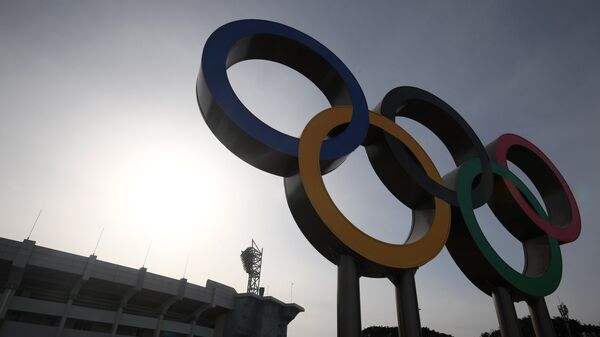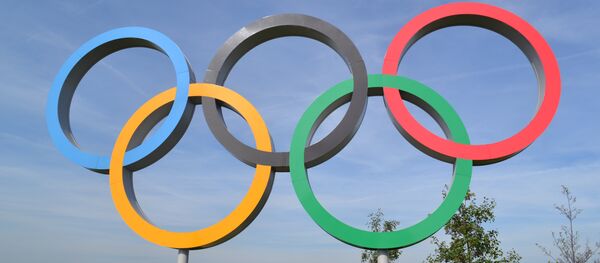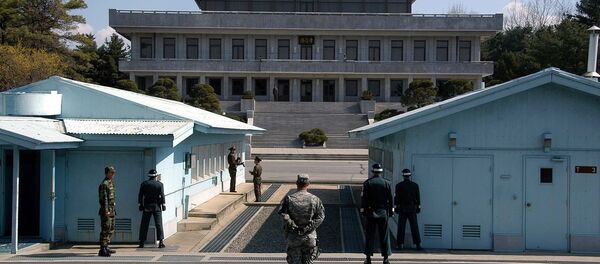During the first high-level official talks between North Korea and South Korea in more than two years, Pyongyang offered to send a delegation of high-ranking officials, athletes and cheering squad to take part in the Pyeongchang Winter Olympics, scheduled to kick off in early February, local media reported Tuesday.
"We came to this meeting today with the thought of giving our brethren, who have high hopes for this dialogue, invaluable results as the first present of the year," Ri Son Gwon, head of the North Korean delegation who is chairman of the North Korea’s Committee for the Peaceful Reunification of the Fatherland, said during the meeting, stressing that Pyongyang came to the talks with a "serious and sincere stance."
Improve National Image Globally
After almost a full year of continued provocations such as missile tests and successfully detonating its most powerful nuclear bomb in 2017, North Korean leader Kim Jong Un seemed to have a change of heart on New Year’s Day, expressing his willingness to hold dialogues with South Korea during a televised speech.
READ MORE: South Korea Will Reportedly Offer Visa Extensions to Winter Olympics Spectators
The North Korean side followed up Kim’s words with a series of peace gestures, including reopening a direction communications hotline between the two nations and sending a delegation to the high-level inter-Korean dialogue on Tuesday, when they offered to take part in the upcoming Winter Olympics.
"That’s really a significant change. It is a sign that the sanctions are working. The situation is getting difficult in North Korea. The big burden on their part is that the North Korea regime is being pasteurized in the international community. Traditionally, countries that have been friendly to North Korea, such as the Philippines and some other Southeast Asian countries, are turning their back against the regime by cutting off economic ties. African countries such as Uganda or Sudan, which are traditionally friendly to North Korea, are cutting off military ties with Pyongyang. It has become the international community versus North Korea. This structure has become a big burden on North Korea. There’s a need for the North Korea regime to send this signal to the international community that it is a responsible member and they’re more than willing to send a delegation and athletes to the Winter Olympics," Kim Jae-chun, an international relations professor at Sogang University and a former South Korean government adviser, told Sputnik.
North Korea’s intention is to ease sanctions and improve their national image in the international community, he added.
Following a series of missile tests from North Korea, the United Nations Security Council passed three resolutions in 2017 to introduce rigid economic sanctions aiming to cut financial supply to its nuclear arms program. China, the primary trading partner of North Korea, suspended imports a large number of imports from Pyongyang, including coal, iron ore and lead, which are the key resources of foreign currency revenue for North Korea.
Temporary Peace
The Seoul-based expert expects the relatively peaceful conditions on the Korean peninsula to continue until the Winter Paralympics are completed in South Korea in March.
"I think for about 30 days until the Winter Paralympics ends, both Koreas would try not to spoil this atmosphere. The objective is to make the Pyeongchang Olympics successful. This peaceful atmosphere will continue for about one month," he said.
However, both sides still need to resolve some hurdles before North Korean delegations can take part in the Winter Olympics, the expert pointed out.
"Momentarily, the peace will sustain, because after all the inter-Korean dialogue is to help better prepare North Korea to participate in the Winter Olympics in South Korea. There’re a lot of hurdles both sides would have to cross, such as logistics regarding to how they [North Koreans] would arrive in Pyeongchang whether through land or vessels," he said.
Denuclearization Talks Inevitable
The South Korean expert argued that when the temporary period of peace finishes when the Winter Olympics and Paralympics end, both sides will have to face the tough issue of discussions on denuclearization.
"After that, North Korea has no intention to give up its nuclear weapons and missiles. South Korea will inevitably try to bring North Korea to the denuclearization negotiation table, in which case, North Korea will refuse. There’s going to be difficult times in the end. I don’t know how to this can continue, because dialogues without bringing up issues of nuclear weapons will have limits," he said.
READ MORE: N Korea Reportedly Picks Delegation for Talks on Winter Olympics Participation
Professor Kim believes holding dialogue may not be enough to bring real peace to the Korean peninsula, unless North Korea agrees to give up its nuclear weapons.
More Compromise From North Korea
The North Korean side needs to demonstrate more sincerity to the peace talks by offering more compromises, the Seoul-based expert argued.
"If this dialogue is going to bear some fruits, it’s inevitable for the South Korean government to bring up the nuclear weapons issue, even though the North Koreans would hate it. We have to steer them to this negotiation table. It is unrealistic for North Korea to give up its nuclear weapons all at once. But they still have to be a little bit more sincere than this. Right now, they’re saying there’s no way for them to talk about denuclearization. There has to be some kind of compromise here," he said.
Professor Kim warned South Korean President Moon Jae-in's administration against playing into the hands of North Koreans by easing existing sanctions against the isolated nation.
READ MORE: Pyongyang May Demand Sanctions' Lifting in Return for Participation in Olympics
"There’s no other way but to maintain the tough sanctions regime, even during the inter-Korean dialogue. If the Moon administration tries to relax some of the sanctions in the vain hope that North Korea would agree to measures to denuclearize. That’s going to really drive the wedge between South Korea and the United States. That would put South Korea in a very difficult position. The Moon administration would have to take extreme caution and try not to hurry in this situation. Otherwise, we could fall into the traps set up by North Koreans," he said.
Smart Move
By offering a series of peace gestures, the North Korean leadership has turned the table around and put the United States, especially US President Donald Trump, in an awkward position, political analysts argued.
"North Korea wants to deescalate the tension and improve its national image internationally. This would make it more difficult for the Trump administration to make policy decisions on this issue. As long as Trump continues to hold onto the position of denuclearization of North Korea, it will make no difference if Pyongyang decides to take part in the Winter Olympics or not. This situation would only benefit the North Korean regime, because it would make the Trump administration look embarrassed. On the surface, it appears that North Korea is willing to resolve the conflict through diplomatic means, while Trump continues to refuse to hold talks. This is more of a publicity move by North Korea. This is a very smart move by Kim Jong Un, because he improved the situation surrounding his nation at minimal cost," Zhang Baohui, a professor of political science and director of the Center for Asian Pacific Studies at Lingnan University in Hong Kong, told Sputnik.
"South Korea never said it wants North Korea to denuclearize at once. The Moon administration focuses on establishing better relations with North Korea. The latest development fits South Korea’s interest perfectly. They do not view the nuclear threat as serious as the Trump administration does. Other nations think it’s more important to avoid warfare. This is the focus of most other nations, including China," he said.
The expert does not expect Trump to change his position on North Korea’s nuclear weapons because of the US leader's stubborn personality.





